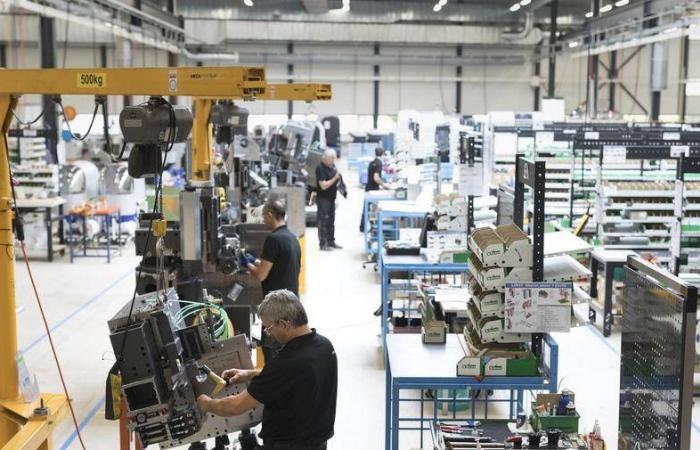Thus, the PMI index for industry remained below the growth threshold of 50 points, as was the case throughout 2024. It peaked at 49.9 points in September and October as well. than a low of 41.4 points in April. The renewed optimism of purchasing managers last fall has clearly fizzled.
A worrying development in the level of employment
The increase in production after the summer was short-lived. In December, this component of the main index fell by 2.4 points, falling below the growth threshold of 50 points. For order books, the sub-index stood at 49.7 points, a level also below the growth limit. It is at the level of employment that the development remains the most worrying, the component having fallen by 0.8 points to 44.7 points.
Delivery times have hovered around the 50 point mark since August, say the authors of the study. In December, this sub-index stood at 50.9 points, much higher than the 49.3 points in November. Customer inventory reduction slowed at the end of the year, which allowed the component to jump to 48.6 points, compared to 42.5 points the previous month. This peak has never been reached since July 2023.
The tertiary sector is clearly doing better than its industrial cousin. The services PMI improved by 1.4 points in December, to 53.2 points. Despite the slack in March (47.6 points), May (48.8 points), July (44.7 points) and September (49.8 points), the barometer remained mainly above the barometer. 50 points.
Measured fears after the election of Trump
For the third month in a row, the purchasing managers who participated in the survey showed their optimism. Three of the four components of the PMI services index increased, including that devoted to commercial activity which rose to 57.8 points, its highest level since January 2024. The sub-indexes linked to new orders ( 55.2 points) and order books (51.3 points) also grew in December.
Employment is the only downside. After tickling the 50-point threshold in October and December, the component plunged 1.7 points in December to 47.6 points.
Questioned about a potential strengthening of protectionism linked to the election of Donald Trump as president of the United States, Swiss industrial companies do not seem worried. Only a “small number” of them have faced these difficulties in the past or fear being affected in the future, the press release specifies. Four out of ten companies expect more trade barriers this year.
UBS and Procure.ch describe a similar situation for the services sector. Nearly 30% of companies fear an increase in protectionist measures over the next twelve months.
The industry and services PMI indices are established on the basis of a monthly survey of Procure.ch members.






